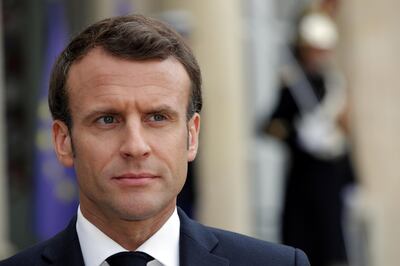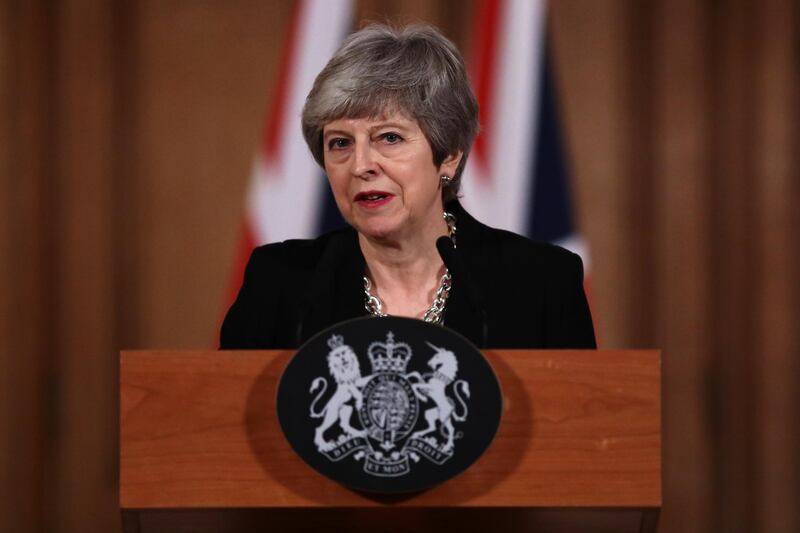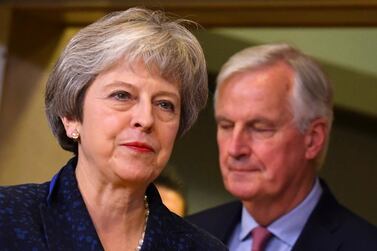British Prime Minister Theresa May announced a shift in her approach to Brexit by calling on the opposition Labour party to forge an agreed approach to break an increasingly bitter impasse.
She said she would seek a further extension to the UK leaving the EU until the end of May.
But the move has caused fury among her colleagues in the ruling Conservative Party because Labour is likely to favour a softer Brexit.
Hard-line Brexiteers, such as former foreign secretary Boris Johnson, hit out at the prime minister for agreeing to hold talks with Labour's socialist leader, Jeremy Corbyn.
Brexit was becoming “soft to the point of disintegration”, Mr Johnson told Sky News.
While the leader of pro-Brexit European Research Group, Jacob Rees-Mogg said Mrs May was collaborating with a "known Marxist".
Mrs May made the announcement after a marathon nine-hour discussion with senior ministers to try and hammer out a way forward on Tuesday.
“Today I am taking action to break the logjam," she said. "I am offering to sit down with the leader of the opposition to try to agree on a plan that we would both stick to, to ensure that we leave the EU and that we do so with a deal."
Mr Corbyn said he would meet Mrs May to agree on a plan to ensure "certainty and security" for the future.
Brexit minister Steve Barclay said that if the talks did not "bear fruit" then government will ask parliament to vote on a series of options.
He told the BBC on Wednesday that the "remorseless logic" of his Conservative colleagues in not supporting the prime minister's divorce deal had led to the talks with the opposition.
Meanwhile a group of cross-party MPs said they still try to push through a bill, which would make a no-deal Brexit a legal impossibility.
Donald Tusk, President of the European Council, appealed for the EU to give Mrs May time as she attempted to break the deadlock.
Even if, after today, we don’t know what the end result will be, let us be patient. #Brexit
— Charles Michel (@eucopresident) April 2, 2019
"Even if, after today, we don't know what the result is, let us be patient," Mr Tusk said.
Good that PM @theresa_may is looking for a cross-party compromise. Better late than never. #brexit https://t.co/mreauKV3Wu
— Guy Verhofstadt (@guyverhofstadt) April 2, 2019
But other voices in the EU were not so patient. Before the prime minister gave her speech, French President Emmanuel Macron warned Britain that an extension to its membership of the EU while it resolved its deadlock could not be taken for granted.
“The EU will not be hostage to a political crisis in the UK,” Mr Macron said, ahead of talks in Paris with the Irish leader Leo Varadkar on Tuesday.

Mr Macron said if a decision were not made soon, Britain would have chosen a "de facto" no-deal Brexit.
"Should the UK be unable to, three years after the referendum, propose a solution backed by a majority they de facto will have chosen by themselves to leave without a deal," he said.
"We cannot avoid failure for them."
While former German minister Norbert Roettgen said the EU should insist on a long extension of Britain's departure date and for the country to participate in upcoming European Parliament elections.
The EU's chief Brexit negotiator Michel Barnier urged London to make a decision on the way forward, saying there were only three options left: a no-deal Brexit; the prime minister's deal; or a much longer extension of Britain's departure date.
Last month, the EU agreed to delay Brexit until April 12 but Mr Barnier said any further extension would create "significant risks for the EU" and a "strong justification would be needed".
Mrs May is due to meet EU leaders at an emergency summit in Brussels on April 10 to decide what steps remain open.






